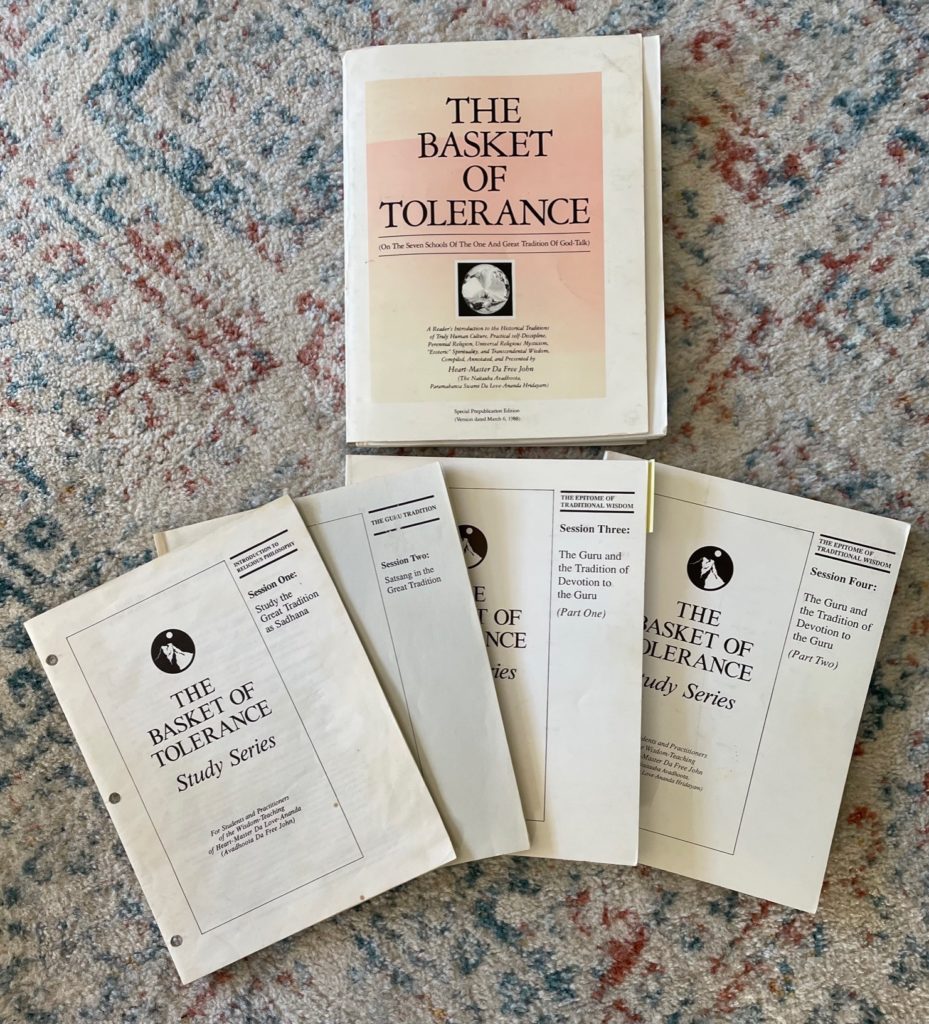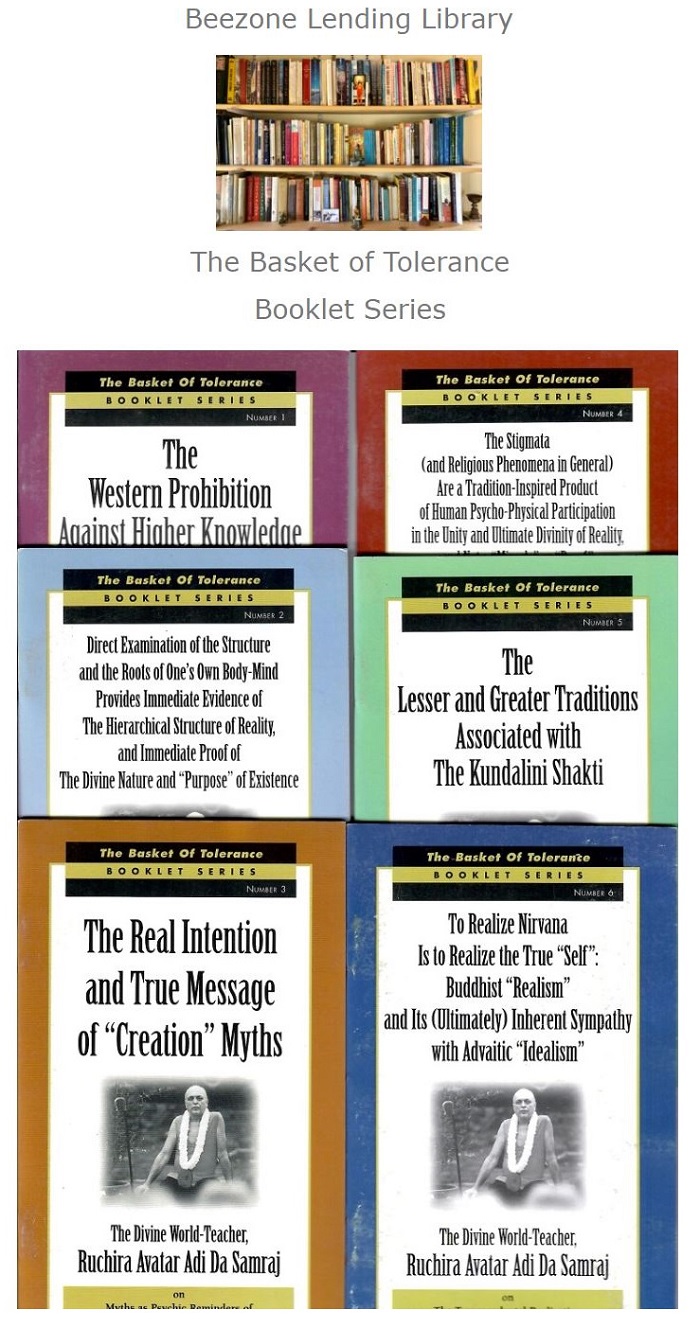***
THE DIVINE AVATARIC WORLD-TEACHER, ADI DA SAMRAJ
at Adi Da Samrajashram, Fiji on May 28, 2008

The Basket of Tolerance is a Tool, not a Book List
AVATAR ADI DA SAMRAJ: The principal dimension of The Basket of Tolerance is My Communications in it and the structure of it. In other words, it is a tool, not a book list. So if you simply present the books, it is just going to be conventionally used, like people going to their local bookstore and just randomly reading things off the shelves. There is nothing new about that.
What is new is this system, this tool, and all My Communications about it. So as a system and as a tool, rather than as a booklist. The booklist just proves the rightness of the system or the tool. It demonstrates My Argument. It is not itself simply material to be studied on its own. On its own, it doesn’t amount to a Great Tradition. It is a Great Tradition only through this understanding or the use of this tool, this system that I bring to looking at it or considering it.
The Basket of Tolerance is more of a university or a system of education than it is a book. It is not really a book list. [inaudible] tradition of establishing a chair or a department or even a school, just depending how large the educational context is. But a university, rather than simply buying this systematic booklist tool, however they might consider it, it’s got to be considered a tool or a system. It should, in effect, be establishing a chair or a department of Adidam studies. Then this would be used within that context, a systematic approach to the global human tradition. So it is more than something within their system. It is itself a system to be added to chairs and departments they already have. It is something like opening up a school within the university. Just as Danny is talking about having it within the educational domain that he is going to be creating, it is a school there within this new paradigm university circumstance that he is creating.
So it’s the same with bringing The Basket of Tolerance, bringing Adidam, really, into the context of universities. It is not merely about the Great Tradition; it is about Adidam. It’s using the tools of Adidam to understand global humanity as a tradition, rather than just a collection of different whatevers.
The Basket of Tolerance shows all of human culture as a prior unity, in other words, a systematic unity with particular features and dimensions, six stages of life worth. So it’s a way of understanding the human totality as a totality or as a whole, as a prior unity, as a Great Tradition.
The materials that were formally on this page were in violation of copyright laws and were removed at the request of
![]()
© 2016 ASA. All rights reserved.
It is Avatar Adi Da’s ever living Intent in regard to this work
that it not be reproduced or modified without consulting ASA.
Beezone apologizes for any inconvenience this may have caused.
Beezone is currently working with ASA (The Avataric Samrajya of Adidam Pty Ltd, as trustee for The Avataric Samrajya of Adidam, which owns all of Avatar Adi Da Samraj’s Intellectual Property including the trademark ADIDAM) to conform Beezone’s usage of ASA IP to “fair use” and to the terms of their mutual license agreement.
Visit

